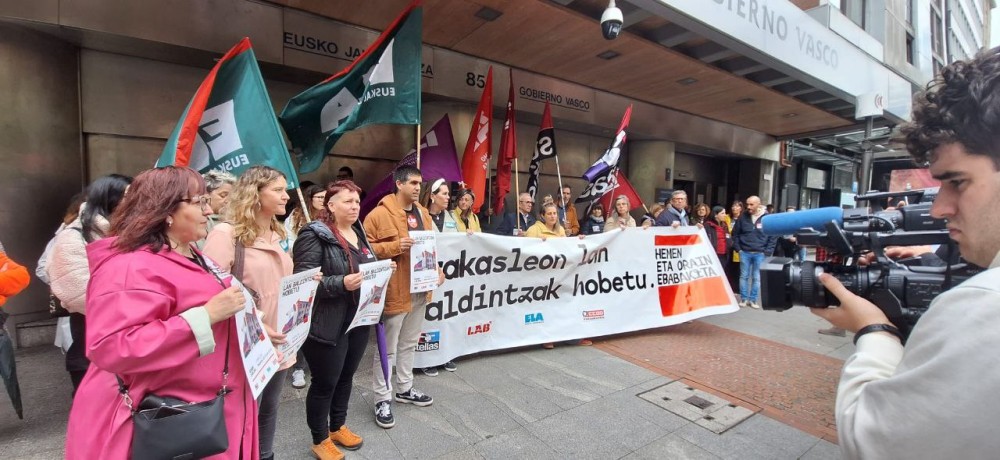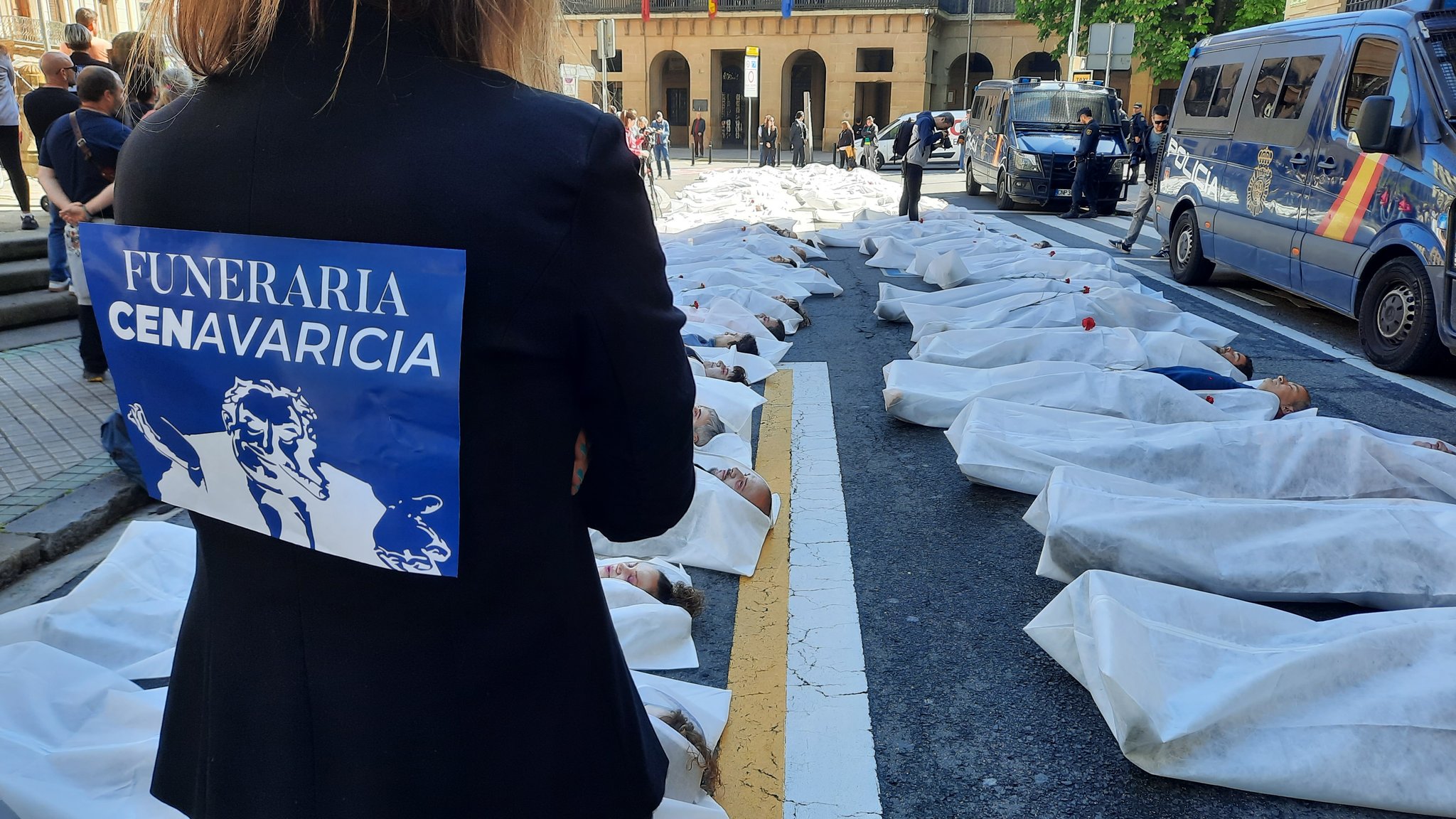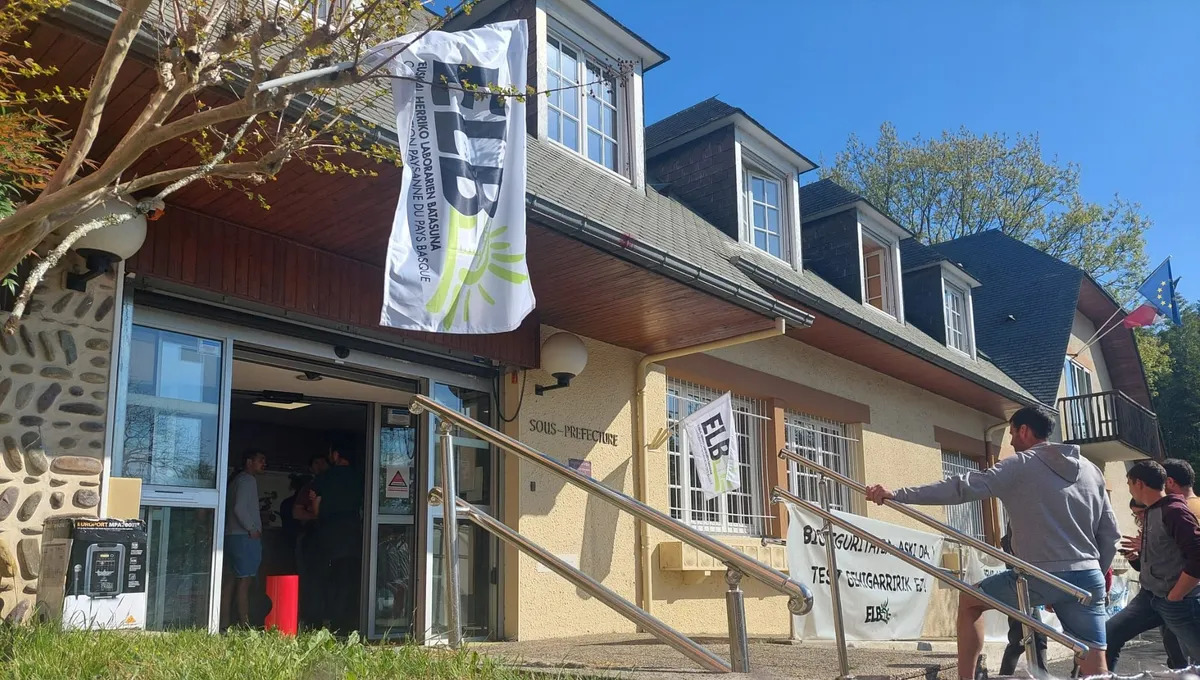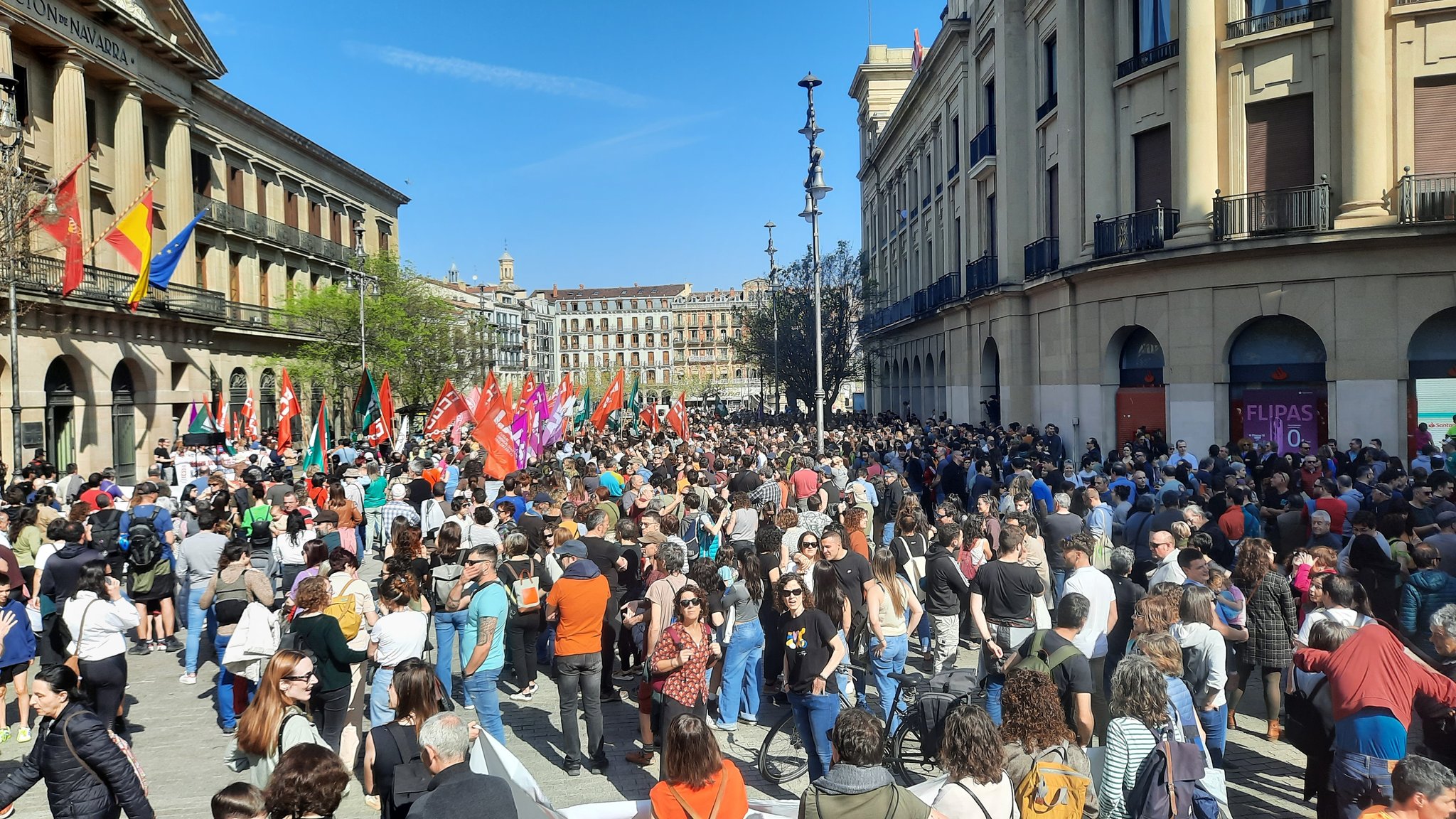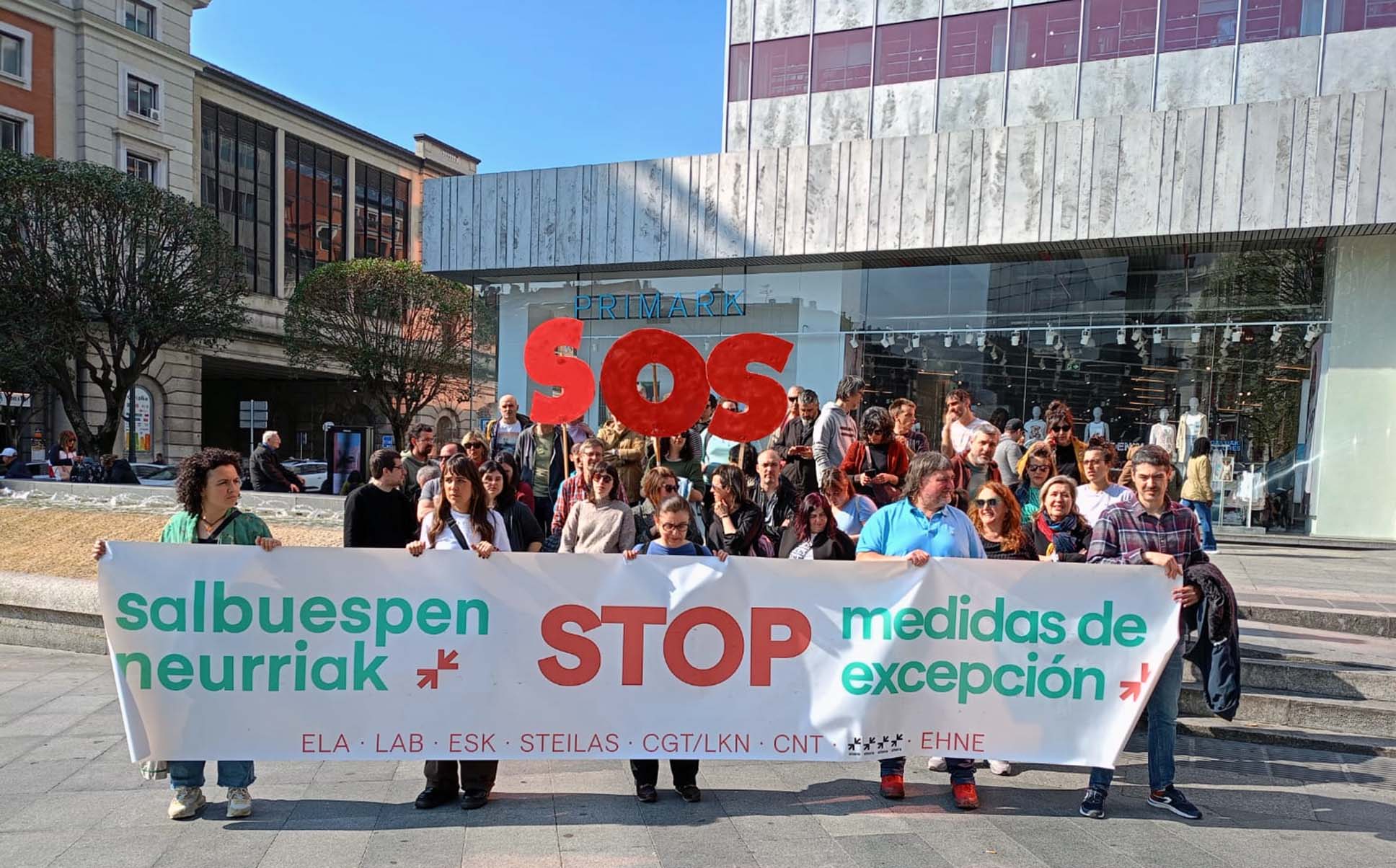Force and union resettlement at the Tolpudle Festival
- The town of Tolpuddle, in southern England, will pay tribute from 18 to 20 July to the workers who were dismissed for trade unionism 180 years ago at the Tolpuddle Martyrs Festival with plays, conferences and songs. Trade unionists throughout the United Kingdom will be joined this time by the march advocating the Transition.
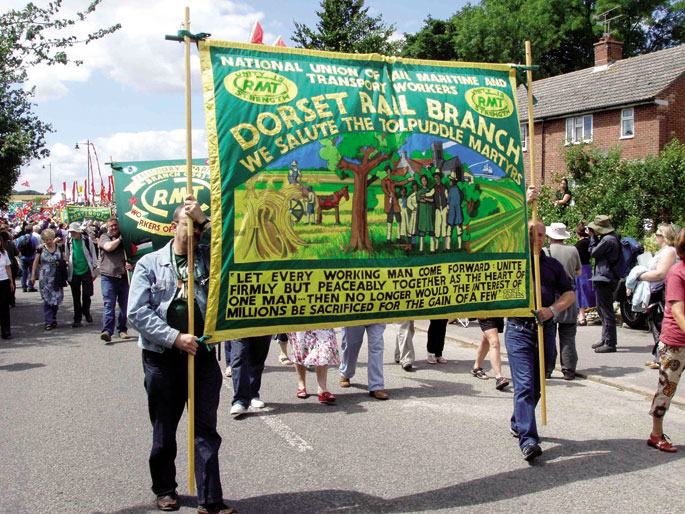
More than one would be surprised if the economic and social relocation in Iparralde had been launched on 1 May alongside the classic slogans of the trade unions. Long live! Has it been a stone of partnership? In that case, they are not the only ones. In England, trade unions celebrate the Tolpuddle Martyrs Festival, one of the most famous summer dating in history, and meet those who walk on their path to minimize it. The debate on the growth or development model is getting deeper into the whole Left.
Tolpuddle Pilgrimage is baptized as a secular pilgrim in favor of reduction. On 10 July they will depart from the port of Plymouth and make a 10-day journey to Tolpudle, in the Dorset region. Here the six peasants who have been re-elected for 180 years for their efforts to defend the rights of the workers, the Tolpudle Martyrs, have met for some time. The 1834 accounts are not as old as we will see later.
Pilgrims for the Transition will be mixed with the most well-known cries, songs and demands of trade unionists. The director of Enda Magazine Alternativa, Jonny Gordon-Farleigh, has written in New Internationalist that “he will unite the history of the famous Dorset labrers and reinvent our food system to feed the future.”
The goal of the march is to show the remains of the Great Transition, one of the references of the alternative development models of the New Economics Foundation (NEF), with all kinds of meetings and activities. In addition to feeding on farmers’ local productions, they will talk to them about the formulas that are emerging to deal with a globalised agro-industry.
Gordon-Farleigh has announced that they will promote “the transition groups that have emerged in the villages: energy cooperatives, credit associations, vegetable gardens in Auzolan. They are trying to relocate our economic system to respond to the oil summit, climate change and financial catastrophe.” Walkers will be faced with acts in favour of universal basic income and with the creation of consumer groups of farmers and ambulances.
On the way they will plant the shoots of the old banana (Platanus occidentalis) that served as a refuge for the Martyrs of Tolpudle in their meetings. “They are what we call ‘organizing trees’. They represent our need to meet in the open air, which was formerly the Tree of Gernika [in the original text comes in Basque] for local politics or more recently the neighborhood assemblies in Argentina after the catastrophe.”
As a small symbol of relocation, pilgrims will drink local beer, made by a 19th century formula by a “micro-brewer” in tribute to Martirien, also with Australian hops. In 1834, six prisoners of war were sent to Australia.
Slave of robbers of public goods
On February 24, 1834, in the morning, George Loveless left his house and would not return until three years later. After George, they accused James, his brother, and four more, six in total. His real crime was to have organized a unit of the workers' union of the villages to try to increase the miserable wage paid by the large landowners.
The great landowners of England feared the movements of the poor peasants. Reference was made to the revolt in France. In England, in the early 19th century, the rebel peasants were burned again and again by the owners of the new machines they bought to make the harvest cheaper at the so-called Swing Rebellions. 500 were sentenced to overseas prisons, 19 were hanged.
To understand the context of this story, we must know that it was related to the great theft committed by the English aristocracy in the previous centuries. The robbery was called enclosure, closing it. The same would be done shortly afterwards in Spain with the Des102. Believing that small farmers were not able to take advantage of the land, the authorities decided to sell all communal land, meadows, grasses and forests. They condemned the misery to the small farmers who always used wood as a food for cattle, forced many thousands to immerse themselves in the proletariat of the cities, the large landowners began to put machines in the land, provoking the great concentration of property that England, like Spain, has today.
There was also concern in the Dorset region. They had come to the ears of the town's stead and met in the shadow of a great banana. In old images appear the six men talking around the tree and another spying behind the trunk. Since the 18th century they have been detained by a law banning sedition and conspiracy to send them to an Australian prison.
The court judged the six clandestine, a Williams landowner baron, as well as the judges he had as president. He made it clear that it was as important as punishing the culprits to seek an experience that shook them. In Australia, they were sentenced to seven years ' imprisonment in forced labour.
The dreadful ships carrying more than 500 convicts, the ill-treatment in prisons, the diseases... gradually came to England. Trade unions reacted with large concentrations of people.
The chronicles say that in a rally in London, 100,000 people, 5,000 policemen and military sent by the government to watch them. It also collected 800,000 signatures asking for forgiveness for the six martyrs. Three years later, they got them back home. The six peasants continued to fight for civil and trade union rights. The gentlemen did not leave them alone. All but one had to leave the village.
Political speeches have been made in Toldpuddle for years. In recent years it has become a three-day festival. It partly marks the pulse of the political left and the unionism of England. This year, it will be joined by the new force of the transition movement. In Baiona, like May 1.
“Even with all the shortcomings, the unions have done more for humanity than any other human organization that has ever existed. They have contributed more to dignity, honesty, education, collective well-being and human development than any other association of people.” ... [+]
Public education teachers have the need and the right to update and improve the work agreement that has not been renewed in fifteen years. For this, we should be immersed in a real negotiation, but the reality is deplorable. In a negotiation, the agreement of all parties must be... [+]
%90eko jarraipen "ia erabatekoa" izan du grebak, sindikatuen arabera. Gasteizko parkeak, lorategiak eta eraztun berdea mantentzen dituzte Enviser azpikontratako 90 langileek.












